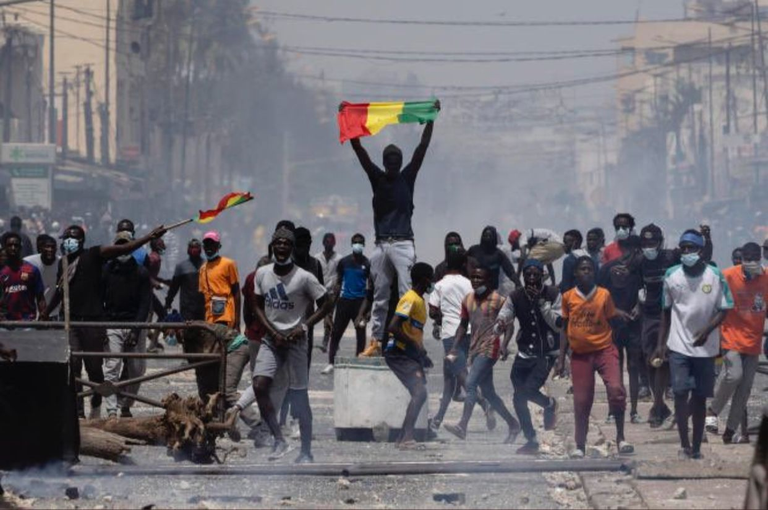Riots in Senegal against the government
Senegal's current president, Maky Sall, signed an order deferring the country's scheduled February 25 presidential elections until a later date, causing hours of unrest.
a decision that was expected in an address to the country and that came about as a result of several party internal conflicts that resulted in the elimination of several candidates who were judged ineligible.
The opposition did not take well to the proposal to postpone the polls; on Sunday, it said that it will disregard the ruling and go ahead with its own election campaign regardless.
Following that, a call to the streets drew hundreds of Senegalese people who were yelling for dictatorship. According to local sources, protesters and police engaged in violent altercations that mostly affected Dakar, the country's capital. It is said that the police used tear gas on the throng here.
Senegal is regarded as one of the most stable nations in Africa in comparison to other states, and this is the first time that elections have been delayed in the nation's history. Furthermore. The government recently ordered the shutdown of a private television station for inciting unrest and announced the suspension of internet access. For this reason, the opposition refers to an assault on democracy and a constitutional coup.
There have been violent protest suppressions in the past as well. The Senegalese Red Cross reports that at an anti-government rally in June of last year, 23 people died and 390 were wounded. The protest began after opposition leader Ousmane Sonko was imprisoned on charges of corrupting youth. It has also gained traction in other nations, including France.
Senegal's African economic society, Ecowas, also voiced its thoughts on the state of affairs. The Community voiced concerns over the Government's intention to forgo regular elections in an official declaration. The European Union is particularly concerned since Senegal is one of the few Sahel partner nations that remains following the uprisings in Mali, Burkina Faso, and Niger.
